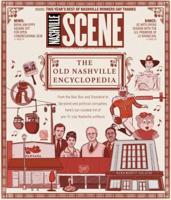For his ninth feature, writer-director-cinematographer Paul Thomas Anderson once again returns to the well of Southern California in the 1970s. It’s a setting that the filmmaker exploited with aplomb in his wildly disparate Boogie Nights and Inherent Vice, and indeed was the setting of his own early childhood. In Licorice Pizza, Anderson follows precocious force of nature Gary Valentine (late, great, frequent PTA collaborator Philip Seymour Hoffman’s son Cooper Hoffman in his first feature role) and rudderless, explosive 20-something Alana Kane (played by Alana Haim of familial pop trio Haim, also in her first feature role — read our interview with her here).
Valentine — based on real-life child-actor-turned-film-producer Gary Goetzman — is a 15-year-old hustler who commands a fleet of unsupervised Valley children as henchmen in his various schemes. The cast is littered with show-biz kids and other Hollywood near-royalty (Leonardo DiCaprio’s dad! Tim Conway’s son! Steven Spielberg’s daughter!), giving it a patina of vintage Southern California authenticity. Licorice Pizza, named for a now-nonexistent chain of record stores that never appears in the movie, is a wandering collection of SoCal anecdotes and opportunities for set pieces featuring charismatic performers. Tom Waits and Sean Penn and Bradley Cooper all chew the scenery here, and that’s as much fun as anything else in the film. Gary sells waterbeds and auditions for boyswear commercials and opens a pinball parlor — endeavors that lead to plenty of opportunities for hijinks. But the emotional axis on which the whole thing turns is the relationship between Gary and Alana — him an impossibly ambitious industry kid, her a brooding slacker who can’t seem to figure out what it is she wants to do.
This is a very distinct film, as all of Anderson’s films are distinct. Where his previous effort Phantom Thread was a quiet, restrained chamber orchestra of a movie, Licorice Pizza is sunny and bombastic, punctuated by Nina Simone, David Bowie, Doors and Wings needle-drops. Some filmmakers build a universe within which all of their work lives and interacts, but each of PTA’s movies exists in its own unique world. Licorice Pizza is at times juvenile and absurd, but it is always bursting with life. Its closest kin in Anderson’s catalog is perhaps 2002’s weird, funny and underappreciated Punch-Drunk Love — in which Cooper Hoffman’s dad excelled as an enraged mattress salesman.
Haim is nominated for a Golden Globe and a Critics’ Choice Award for her role in the movie, opening wide this week
Really, if anything unites all of Anderson’s films, it’s his ability to pull deeply intimate performances from his actors and capture breathtaking moments that make it feel as though you’re watching your own memories projected on screen: in Inherent Vice, when Joaquin Phoenix and Katherine Waterston get caught in the rain; in Phantom Thread, when Daniel Day-Lewis searches for Vicky Krieps at a lavish New Year’s Eve party; here, when Hoffman and Haim sprint madly toward each other after a long night of searching for and just missing one another in the greater Los Angeles area. PTA sometimes makes films with life-and-death stakes, like There Will Be Blood or The Master. Nothing in Licorice Pizza is quite so heavy and consequential, but thanks to the performances of its two leads, the film nevertheless feels urgent and vital.
Some ado has been made in certain corners of the internet about the inappropriate and unethical nature of Alana and Gary’s relationship. But these are fictional characters. Bad decisions and messy relationships and immoral activity make for compelling fictional narratives. Anderson isn’t condoning the relationship — which, make no mistake, is bound to make you uncomfortable — but rather asking, “How does this make you feel?”
As much as Licorice Pizza is about the uncertainty of youth, it’s also about what it’s like to care so much about another person that everything else fades into the background. Even, or perhaps especially, when it’s messy, problematic or wrong.






